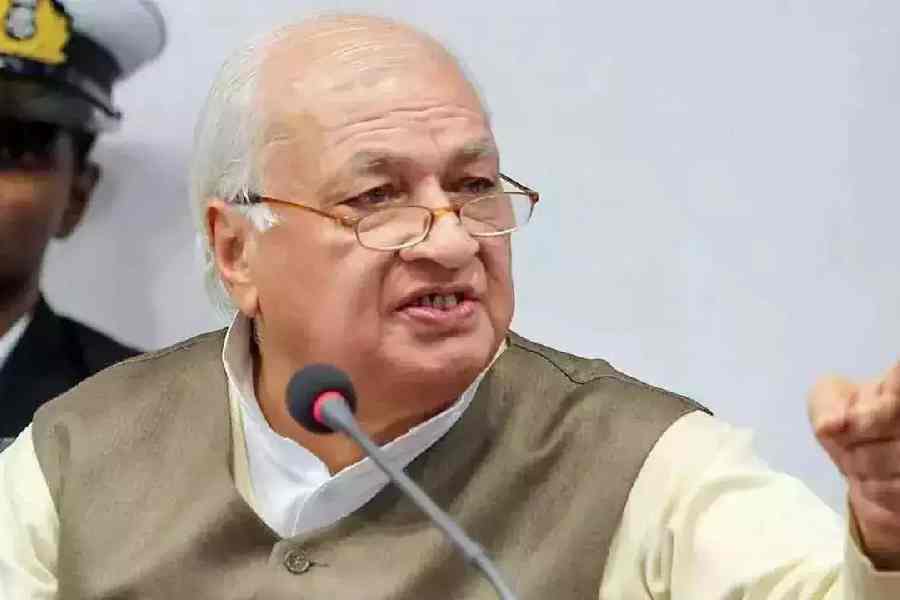Kerala Governor Arif Mohammed Khan on Thursday said he was not a "rubber stamp" or a "yes man" who would give his assent to bills passed by the state Assembly without applying his mind.
Khan said when any ordinance or Bill comes before him, he applies his mind to ascertain whether it is constitutionally and legally sound.
He said that a bill or an ordinance meant for the welfare of the people of Kerala will not stay on his desk for even an hour.
"I will dispose of it immediately. But where they (government) use the power of law to destroy the institutions, universities and their autonomy and also go against the letter and spirit of the Constitution, they cannot expect me to be their yes man.
"I am not a rubber stamp. I am not," he told reporters here.
Regarding the seven bills he reserved for presidential assent, Khan said he had waited for nearly two years for the ministers to come and explain the contents of those legislations.
"The ministers came but could not explain," he said.
Khan further said that since the government decided to go to the Supreme Court, instead of giving the explanations sought by him, he referred the seven bills to the President.
He further justified his action by claiming that of the seven bills, four were in the nature of Money Bills as they entailed expenditure and therefore, prior permission of the Governor was required for tabling them in the state Assembly.
Regarding the remaining three, Khan said that those bills were contrary to the UGC norms.
His decision was criticised by Leader of Opposition in the Assembly V D Satheesan, who said that the Governor cannot unnecessarily hold back bills passed by the Assembly.
"He should not unreasonably hold back the bills for nearly two years," Satheesan said.
At the same time, he also said that the opposition was against the content of the pending bills.
He also claimed that there was no row or dispute between the Governor and the state government and it was all an act to mislead the public.
Among the bills reserved for presidential assent are two University Amendment Bills.
The other bills include the Lok Ayukta Bill, University Bill 2022 (related to divesting the Governor of Chancellorship), the bill regarding the expansion of the University Search Committee, and the Cooperative (Milma) Bill, according to the Raj Bhavan.
Last week, the Supreme Court had asked the Kerala Governor's additional chief secretary to refer to its recent verdict in Punjab's case, where it held that governors cannot "thwart the normal course of lawmaking".
While deciding on the Punjab government's plea against Governor Banwarilal Purohit, the top court had held that governors cannot take the liberty to keep bills pending indefinitely without any action.
The apex court also said that if the governor decides to withhold assent to a bill, then he has to return the bill to the legislature for reconsideration.
Khan claimed that what the apex court said was only 'obiter dicta' or an observation.
Except for the headline, this story has not been edited by The Telegraph Online staff and has been published from a syndicated feed.











